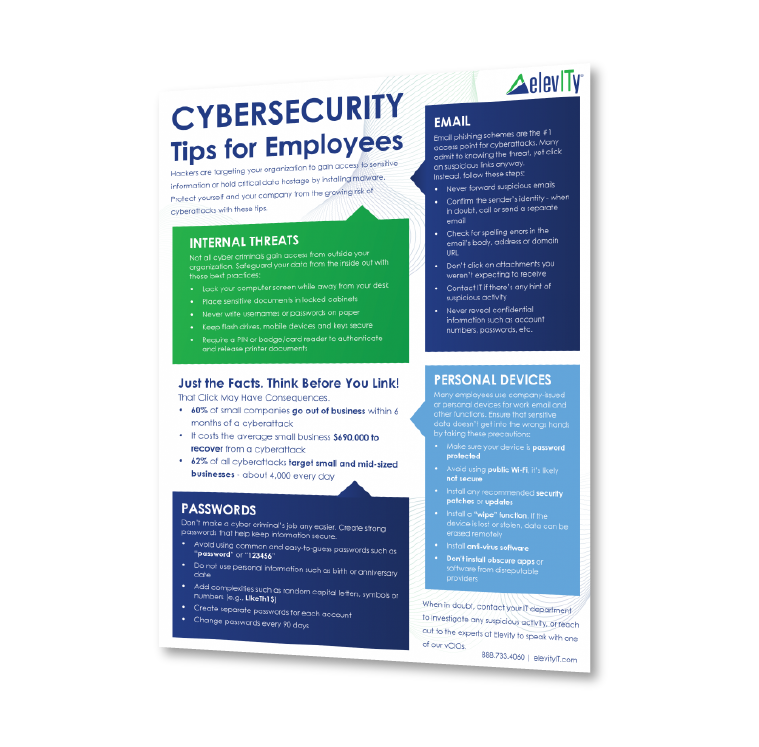Even with all the latest technology, IoT gadgets and advanced artificial intelligence being leveraged by businesses these days, hackers and cybercriminals continue to rely on old, time-tested methods for stealing your data and wreaking havoc on your systems: email phishing scams.
In fact, the number of phishing attacks is on the rise, with one report showing 83% of global info-security respondents having been targets in 2018, up from 76% the year before.
The same report, however, showed that one line of defense helped to detect and deter those attacks: employee training.
When you think of a security breach, you might envision a highly skilled hacker trying to infiltrate your networks through sophisticated means. Truth is, most hackers rely more on psychology than they do sophisticated computer code. They know that employees can be tricked or lured into clicking on sensational headlines or deceptive links in their email. That’s why it’s called a phishing scam. Here are clues your employees should look for to know whether that email is real or really bad.
1. Fake Invoices
This is the number one type of phishing scam. Don’t fall for it!
2. Unexpected Attachments
Even if you know the person who sent it, double check with them to make sure it’s legitimate.
3. Request to Update Account Information
Never click on a direct link. Instead, sign in to your online accounts in a new browser window.
4. Misspellings and Poor Grammar
Reputable companies do a good job of proofreading.
5. You Won a Contest!
Sounds great - but did you actually enter a contest? No? Scammer alert!
6. A Letter From the CEO
It looks like a leader in your organization sent you an email to pay an invoice or send money. Double check with them first.
7. A Tone of Desperation
If there is any hint of threats or terrible consequences if you don’t respond immediately, something is up.
There are countless more types of email scams out there. Bottom line, if the email seems fishy, don’t take the bait.
Be sure to check out more tips for preventing cyberattacks and phishing scams in our Cybersecurity Tips for Employees infographic.
Even with the best intentions and training you’ll want to put measures in place to secure your networks and systems. Reach out to the cybersecurity team at Elevity to talk through your concerns and how a proactive approach can put your mind at ease.













